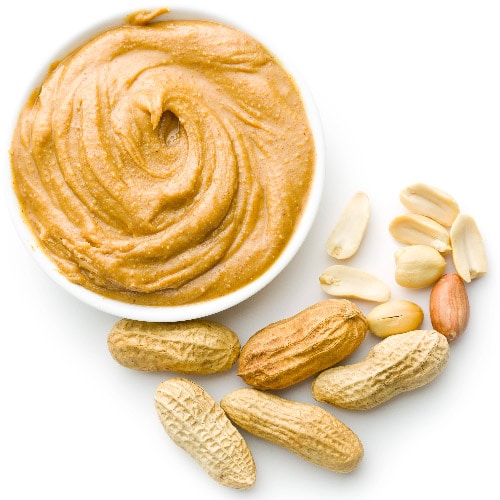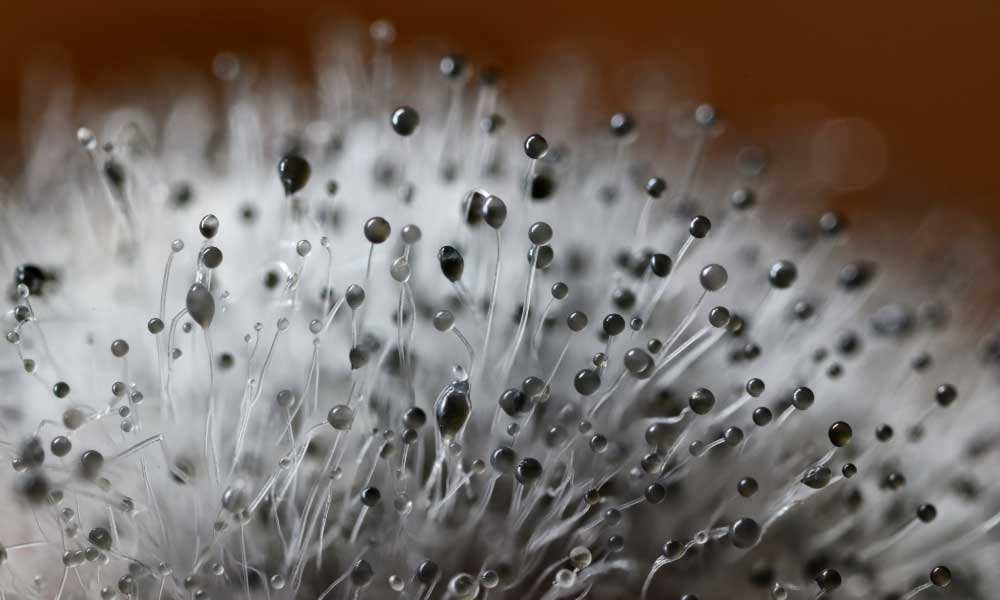
Peanut is one of the top nine allergens in the United States.
- Peanuts are part of the Fabaceae, or legume, botanical family which includes soybean, peas, and beans among others. If you have a peanut allergy, it doesn’t necessarily mean that you’ll be allergic to the other foods in this botanical family. This is a common misconception. Always check with your allergist to see what foods you need to avoid.
- Peanut is the most common food associated with severe allergic reactions such as anaphylaxis. Peanut, along with tree nuts, fish and shellfish, are the food allergies least likely to be outgrown.
- Use caution when going to ethnic restaurants as peanuts are often used and cross-contact may occur.
Nutrition Swap
When replacing a food allergen, focus on incorporating a variety of whole foods in your diet that contain the nutrients you’re missing due to eliminating the problem food.
- 1 oz. of peanuts is a good source of niacin, riboflavin, vitamin E, protein, and magnesium. If eliminating peanuts from your diet, use a variety of these foods as alternatives:
- Niacin: Turkey, chicken, tuna, beef, lamb, pork, brown rice, buckwheat, spelt, kamut, corn flour, wheat, wild rice, millet, barley, sunflower seeds, sesame seeds
- Riboflavin: Lamb, beef, turkey, pork, egg, almonds, soybeans, feta, corn flour, buckwheat, game meat
- Vitamin E: Nuts and seeds, wheat germ oil, avocados, sunflower oil, dried apricots, spinach, turnip greens, taro, tomato products
- Protein: Meat, poultry, fish, dairy products, beans and legumes, nuts and seeds
- Magnesium: Molasses, nuts and seeds, legumes and beans, wheat containing whole grains & gluten-free grains, cocoa powder
Reading Labels
- Per the FDA, peanuts are required to be labeled on food products. Always check ingredient lists to ensure your food products are free from peanut. If in doubt, contact the food manufacturer directly.
- Advisory statements such as “may contain,” “produced in a facility” and “processed on shared equipment” are not regulated by the FDA. These are voluntary statements used per food manufacturers’ discretion.
- Avoid tree nuts and seeds produced on shared equipment, cold-pressed peanut oil, mixed nuts, peanut butter, peanut flour, and peanut protein hydrolysate. This list is not all inclusive.
Alternatives and Suggested Products
- Use any allergy-safe seed butter, soy butter, pea butter or nut butter in exchange for peanut butter in recipes.
- Suggested products include:
- Don’t Go Nuts Chewy Granola Bars
- SunButter, contains sunflower seeds
- The Sneaky Chef No-Nut Butter, contains peas
- WOWBUTTER, contains soy
- mygerbs.com, a website with seeds and other snacks free from peanuts
NOTE: Always double check the allergy statement on any products you purchase. Food manufacturers may change their ingredients at any time.
Recipes
Request an Appointment
